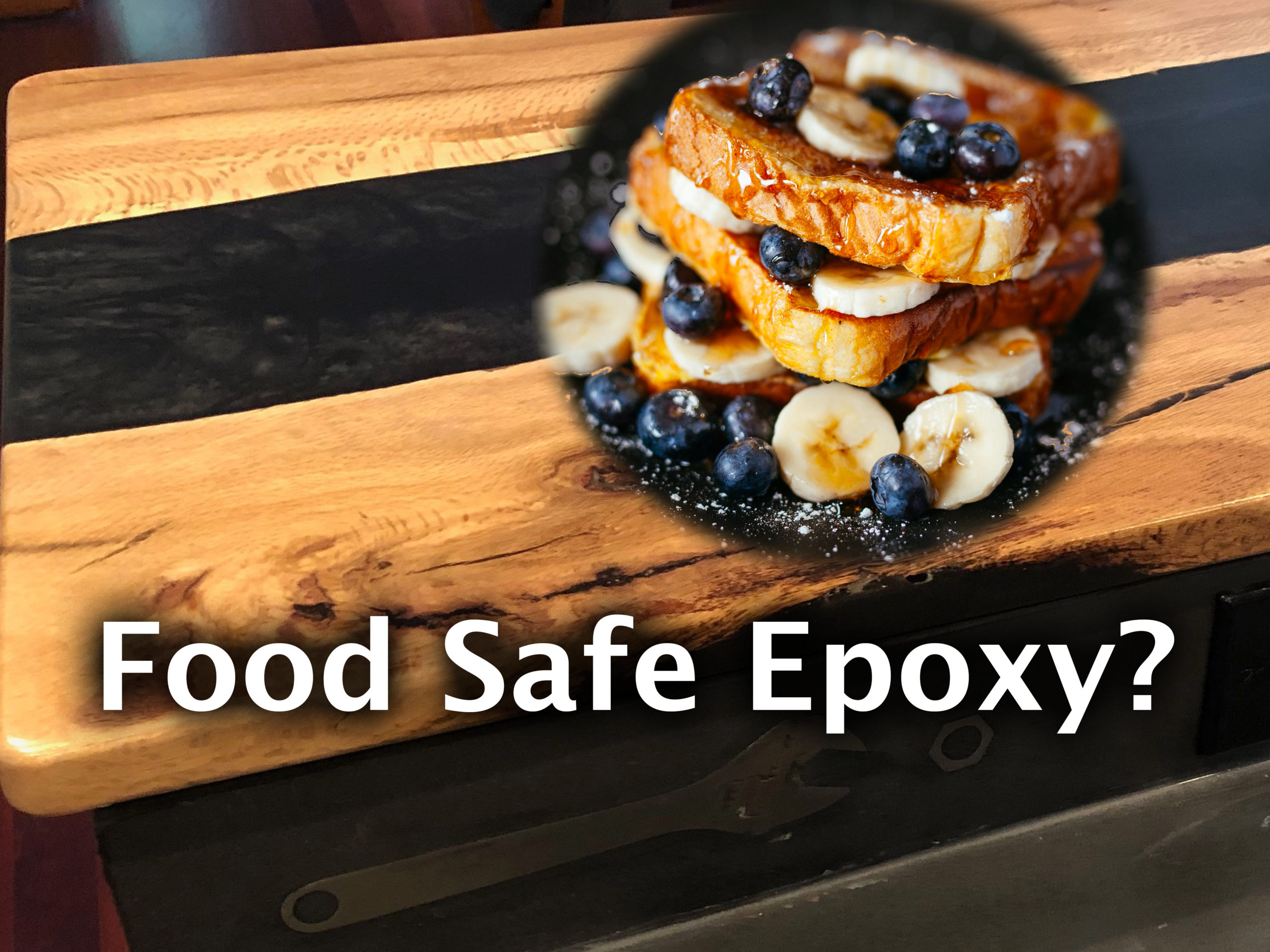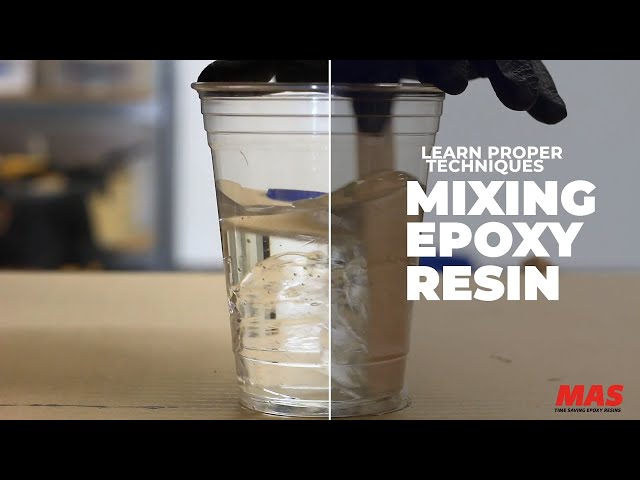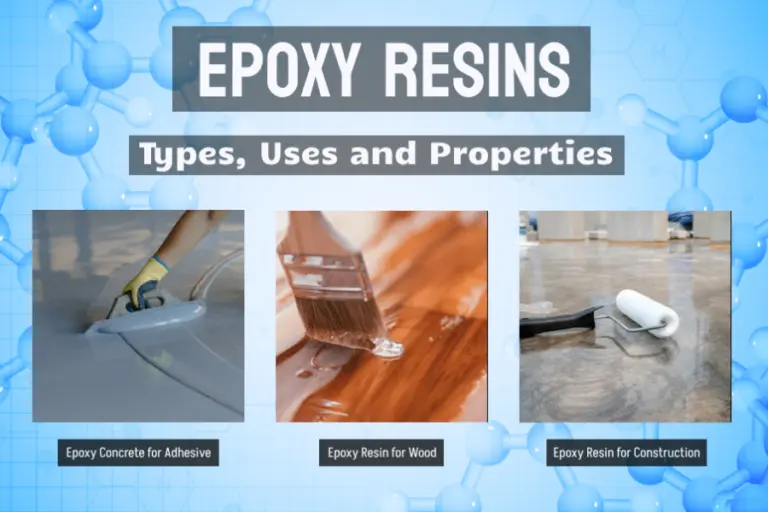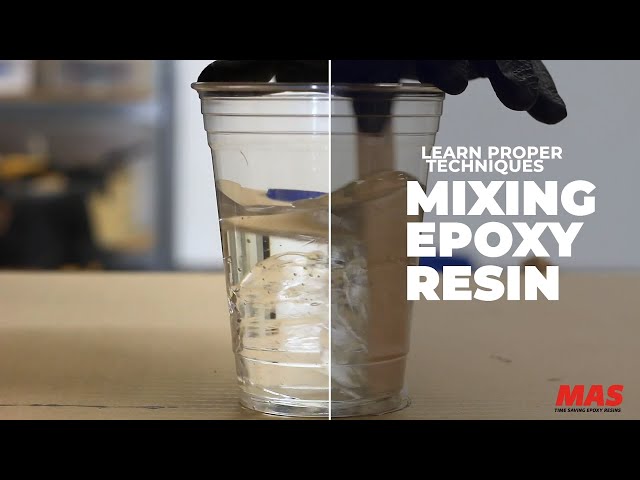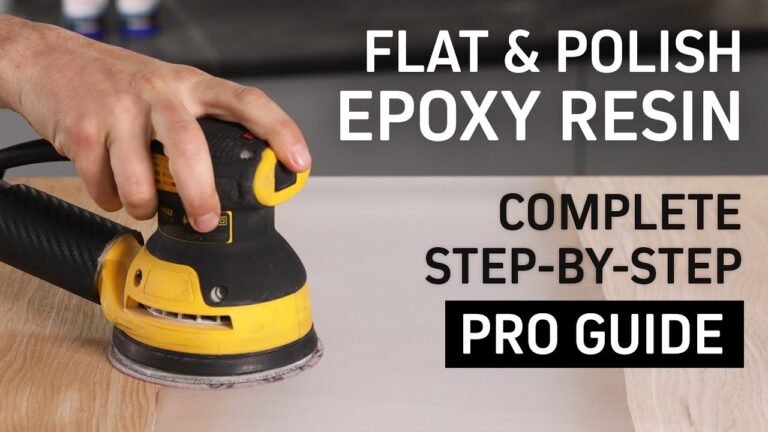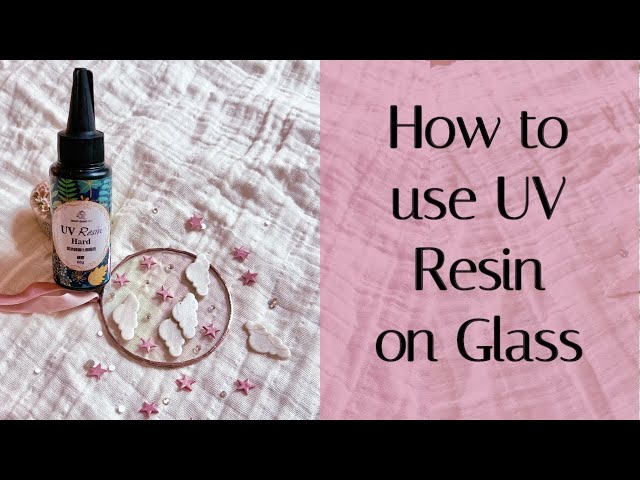Is Epoxy Resin Food Safe: Safety and Usage
Understanding Epoxy Resins
Epoxy resins are incredibly versatile materials used in an array of applications, thanks to their strong adhesive properties and chemical resistance. They are transformative elements in various industries, proving indispensable to home renovators and professionals alike.
Versatile Applications of Epoxy Resins
Epoxy resins serve a broad spectrum of uses, ranging from household projects to critical industrial applications.
- Coatings and Sealants: Epoxy resins are widely used as protective coatings for floors, countertops, and metal surfaces. They shelter surfaces from wear and tear, chemicals, and moisture.
- Composite Materials: These resins are foundational in creating composite materials, including fiber-reinforced plastics, which are utilized in aerospace and automotive sectors.
- Electronics: In the electronics and electrical industries, epoxy resins are indispensable for insulating materials, sealing components, and producing LED lights.
- Adhesives: As structural adhesives, epoxy resins are crucial in industries like aircraft, automobile, marine, and boat repair, among others. They provide high strength bonding and can be customized for various properties such as flexibility, transparency, and setting time (Wikipedia).
Explore more about how to use epoxy resin in your home projects.
Importance of Epoxy Adhesives
Epoxy adhesives stand out due to their versatility and robustness. They are favored in environments requiring strong and durable bonds:
- Strength and Durability: Epoxy adhesives are known for forming extremely strong bonds that can withstand significant stress. This makes them perfect for critical applications in the aerospace and automotive industries.
- Variety of Properties: The adhesives can be fine-tuned to meet specific needs. Whether you require flexibility, ultra-transparent bonding, fast or slow curing times, or adhesion to a variety of surfaces, epoxy adhesives can be tailored to fit the purpose (Wikipedia).
For those looking to dive deeper into the world of epoxy resins, check out our guide on what is epoxy resin.
Understanding the multifaceted uses and significance of epoxy resins can help you make informed decisions for your renovation projects. Whether you’re sealing a countertop, fixing up a boat, or crafting an epoxy resin table, knowing the right type of epoxy and how to apply it correctly is key. For information on handling and safety, read our article on how to get epoxy resin off hands.
Epoxy Resins in Different Industries
Epoxy resins have numerous applications across various industries due to their versatility, strong adhesion, and durability. Here, we’ll explore their usage in the aerospace and automotive sectors as well as the electronics and electrical industry.
Aerospace and Automotive Applications
Epoxy resins are prevalent in the aerospace and automotive industries for their remarkable mechanical properties and resistance to degradation. In aerospace, epoxy resins act as a structural matrix material, often reinforced with fibers like glass, carbon, Kevlar, and boron. These materials provide exceptional strength and lightweight properties, critical for aircraft performance.
In the automotive sector, epoxy adhesives are crucial for high-strength bonding requirements. They offer tailored properties such as flexibility, transparency, and varied setting times, making them ideal for different automotive applications. Epoxy resins are also used in two-part epoxy coatings for heavy-duty service on metal surfaces, providing excellent hardness and protective properties.
| Application | Material | Benefits |
|---|---|---|
| Aerospace | Glass, Carbon, Kevlar, Boron | High strength, lightweight |
| Automotive | Two-part epoxy coatings | Hardness, metal protection, durability |
| Marine and Boat Repair | Various tailored epoxies | Flexibility, transparency, strong adhesion |
For more information on epoxy resin usage, you might check out what is epoxy resin made of and how to use epoxy resin.
Electronics and Electrical Industry
Epoxy resins find extensive use in the electronics and electrical industry due to their excellent properties like electrical insulation and protection from short-circuiting (Wikipedia). They are employed in various applications such as motors, generators, transformers, printed wiring boards (PWB), and semiconductor encapsulants.
These resins provide robust insulation and protect sensitive components from environmental factors, ensuring the longevity and reliability of electronic devices. Their ability to form strong, durable bonds is vital for maintaining the integrity of electronic assemblies and preventing malfunctions.
| Application | Benefits |
|---|---|
| Motors, Generators | Electrical insulation, durability |
| Transformers | Short-circuit protection |
| Printed Wiring Boards | Structural integrity, insulation |
| Semiconductor Encapsulants | Environmental protection, longevity |
Given their widespread applications and benefits, understanding the versatility of epoxy resins in different industries can guide you in making informed choices. For specific guidelines on safe handling and usage of epoxy resins, look into how to clean epoxy resin and how to cure epoxy resin.
Safety of Epoxy Resins in Food Contact
When considering if epoxy resin is food safe for your DIY projects, it’s crucial to understand the regulations and potential health risks involved.
Regulations and Standards
Epoxy resin must meet specific regulatory standards to be deemed safe for food contact. In the United States, the FDA outlines stringent requirements for materials used in direct food contact. Epoxy coatings must be tested and approved as food safe, ensuring they comply with these regulations (All American Woodworks).
| Regulatory Body | Standard | Key Requirement |
|---|---|---|
| FDA (United States) | FDA Regulations | Materials must be tested and approved as food-safe |
| EU (European Union) | Regulation (EC) No 1935/2004 | Materials must not transfer harmful substances or change food composition |
In the European Union, epoxy resin used in food contact applications must comply with Regulation (EC) No 1935/2004. This regulation ensures that materials do not transfer substances to food that could endanger human health or alter its composition (All American Woodworks).
When purchasing epoxy resins, look for products specifically labeled as food safe by the manufacturer. Proper curing time must be followed before using the surface for food preparation.
Potential Health Risks
Although some epoxy resins are considered safe once fully cured, others may pose health risks if not properly formulated or applied. One common concern is the presence of Bisphenol A (BPA), a chemical found in some epoxy resins. BPA can mimic estrogen in the body, potentially disrupting hormone levels and leading to various health issues.
| Chemical | Potential Health Risks |
|---|---|
| BPA (Bisphenol A) | Hormone disruption, reproductive problems, developmental delays, increased cancer risk |
In addition to BPA, other chemicals in epoxy resins may leach into food if the resin is not fully cured. Ensure your epoxy resin is cured according to the manufacturer’s specifications to minimize the risk of chemical transfer.
For more information about the safety of epoxy resins and their usage, visit our pages on is epoxy resin toxic and how to cure epoxy resin.
By adhering to these regulations and being aware of potential health risks, you can safely use epoxy resin for your food-related projects. For further guidance on proper handling, check our article on how to use epoxy resin.
Factors Affecting Food Safety
When pondering “is epoxy resin food safe,” it’s crucial to understand the various factors that influence its safety. Two primary factors include the chemical composition of the resin and the importance of the curing process.
Chemical Composition
The chemical makeup of epoxy resins plays a vital role in determining their safety for food contact. Typically, epoxy resins consist of bisphenol and epichlorohydrin. Bisphenol is a combination of acetone and phenol derived from petroleum, while epichlorohydrin is derived from a chemical called allyl chloride.
| Component | Source | Description |
|---|---|---|
| Bisphenol | Acetone and phenol | Derived from petroleum |
| Epichlorohydrin | Allyl chloride | Essential for forming the epoxy resin structure |
It’s essential to ensure that the resin you’re using is FDA-approved and labeled as “food-safe.” Non-food-safe resins may leach harmful chemicals into food, posing potential health risks. For more details on toxic risks, visit our article on is epoxy resin toxic.
Curing Process Importance
The curing process of epoxy resin is another critical factor in ensuring food safety. Temperature significantly impacts the curing of epoxy resins. Heat accelerates the curing time, while cold slows the process, which is preferred for storage. However, the epoxy resin becomes less effective after warming to room temperature (Powerblanket).
Proper curing involves maintaining an optimal temperature throughout the process. For instance, using a heating blanket can provide reliable and even heat distribution, aiding in a consistent and thorough cure (Powerblanket). Here’s why the curing process matters:
- Temperature Control: Keeps the curing temperature stable for consistent results.
- Heat Distribution: Ensures the entire resin surface cures uniformly.
- Insulation: Prevents heat loss during the curing process.
Visit our guide on how to cure epoxy resin for more detailed steps to ensure the resin cures properly for safe food contact use.
By understanding these factors, you can better assess whether the epoxy resin you’re using is safe for food applications. Ensure to always follow manufacturer guidelines and recommendations for handling and using epoxy resin safely.
For more details on food-safe epoxy choices, check our resources on popular food-safe epoxy brands and how to epoxy resin a table top.
Identifying Food-Safe Epoxy Resins
When considering the question, “is epoxy resin food safe?”, identifying food-safe options is crucial. Let’s explore the key certifications and compliance requirements, as well as some popular brands that offer food-safe epoxy resins.
Certification and Compliance
Ensuring that your epoxy resin is food-safe involves understanding certifications and compliance regulations. In the European Union, epoxy products used in food contact applications must comply with Regulation (EC) No 1935/2004. This regulation ensures that materials do not transfer substances to food that could endanger human health or alter food composition.
ArtResin, for example, has passed numerous tests for food safety across various countries, including migration and chemical contamination tests. This ensures that no harmful substances are transferred to food upon contact with cured ArtResin.
| Regulation/Certification | Requirement |
|---|---|
| Regulation (EC) No 1935/2004 | Ensures materials do not transfer substances that endanger human health or alter food composition |
| ArtResin Certification | Passed 13 different migration and food safety tests across multiple countries |
| FDA Approval (MAX CLR) | Safe for short direct contact with food, suitable for kitchen countertops and ceramic ware |
Popular Food-Safe Epoxy Brands
Several brands offer certified food-safe epoxy resins. Below are some popular options for you to consider:
- ArtResin: Passed multiple safety tests, including nonyl phenol migration testing. ArtResin is certified inert once cured, ensuring no chemical contaminants are present.
- Stone Coat Countertop Epoxy: Known for its durability and safety in food contact applications, making it ideal for countertops (Hirosarts).
- MAX CLR Epoxy Resin: FDA-approved for short direct contact with food, suitable for coating kitchen countertops, mugs, and bowls (Hirosarts).
- Ecopoxy Flowcast Epoxy Resin: Well-regarded for its eco-friendly formula and food-safe certification.
- ProMarine Supplies Art Resin: Popular among crafters for its safety and ease of use.
Additional Information: When using these products, it’s essential to follow proper handling and usage guidelines. Proper curing and application techniques will ensure the epoxy remains safe for food contact. For more tips on how to use epoxy resin, check out our detailed guide on how to use epoxy resin.
Using certified food-safe epoxy resins allows you to create beautiful, functional pieces that are safe for everyday use in the kitchen. Make sure to always verify the specific certifications and compliance standards of the epoxy resin you choose to ensure optimal safety.
Ensuring Food Safety with Epoxy Resins
Proper Handling and Usage
Epoxy resin must be fully cured to be considered safe for food contact. Before curing, the liquid form of epoxy resin and hardeners are toxic and should never come into contact with food or beverages (Hirosarts).
Accurate measuring and mixing of the resin and hardeners are essential steps. Follow the manufacturer’s instructions carefully to ensure proper curing. Keeping illegal food contact with under-cured resin is crucial, as improper mixing or curing can result in a product that might contaminate food (ArtResin).
Here are some key steps to follow for safe usage:
- Accurate Measurement: Use precise tools for measuring quantities.
- Proper Mixing: Mix thoroughly to combine resin and hardener completely.
- Complete Curing: Allow the resin to cure fully according to the manufacturer’s instructions.
- Avoid Exposure: Keep food away from the uncured resin and hardeners.
For additional guidance on epoxy resin usage, you can refer to our guide on how to use epoxy resin and how to pour epoxy resin.
Non-Toxic Additives Importance
While epoxy resin itself, such as ArtResin, is non-toxic and food-safe when properly cured, the safety can be compromised by adding toxic substances. During the curing process, avoid incorporating additives that contain solvents or other potentially harmful chemicals.
Using non-toxic colorants and additives preserves the safety of the epoxy resin for food-related applications. Always check the product label and documentation for any hazard symbols, precautionary statements, and other safety information. Reviewing the Material Safety Data Sheet (MSDS) and contacting the manufacturer directly can also help verify the safety.
Here are some examples of non-toxic additives:
| Additive Type | Description |
|---|---|
| Natural Dyes | Organic and derived from plants. |
| Mica Powders | Non-toxic and safe for art projects. |
| Food-Safe Colorants | Specifically labeled for safe contact with food. |
For tips on adding color to your epoxy resin projects, see our article on how to add color pigment to epoxy resin.
By paying attention to proper handling procedures and choosing non-toxic additives, you can safely use epoxy resin in projects that involve food contact. Explore our resources for more information on the safety and usability of epoxy resins, including is epoxy resin out of style and what are some good polishers for epoxy resin.

